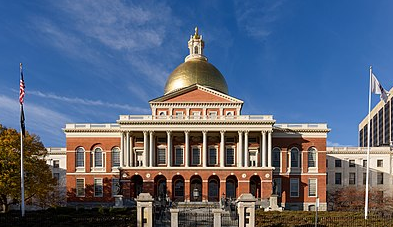Feb. 19, 2021 – On Feb. 18, four trade groups – the U.S. Chamber of Commerce, the Internet Association, NetChoice, and the Computer and Communications Industry Association, whose members include tech giants Amazon, Facebook and Google – filed a lawsuit in the U.S. District Court for the District of Maryland stating that Maryland’s new digital ad tax law passed on Feb. 12 “is illegal in myriad ways and should be declared unlawful and enjoined.”
Although it was predicted that Maryland’s new law levying the nation’s first tax on digital advertising would be subject to legal challenges, it was not expected that the first lawsuit to question the law’s legal standing would be filed less than a week after the Maryland legislature passed it.
“The Maryland digital advertising tax is ill advised for practical and legal reasons,” according to Coalition for Healthcare Communication Executive Director Jon Bigelow. “Until the state Comptroller provides guidance on how the law would be implemented, it is uncertain to what degree pharma advertising would be affected.”
In a Feb. 18 statement, Internet Association Senior Vice President and General Counsel Jon Berroya said that the Maryland law “is a case of legislative overreach, punishing an industry that supports over one hundred thousand jobs in Maryland and contributes tens of billions of dollars to its economy each year.”
The suit contends that the new law is characterized by “many infirmities” and will “raise costs for consumers and make it more difficult for businesses to connect with potential customers.” The complaint specifically notes that the Maryland law violates the federal Internet Tax Freedom Act (because it targets only online advertising, not advertising on television or in print) and the Commerce Clause of the U.S. Constitution.
Further, the plaintiffs argue that the way the tax would be calculated is unfair, and says that the law itself is “punitive” both in severity (a tax of up to 10 percent of gross revenues) and intention (as an attempt to crack down on large Internet companies that collect data to target online advertising). The Maryland law would impose a tax on digital advertising services, including banner, search engine, and interstitial advertising, delivered on websites or any type of software, but the law is not clear on how to determine which portion of an advertising campaign should be ascribed to Maryland, nor how and by whom the tax would be paid.
NetChoice President and CEO Steve DelBianco said the law “is like a tollbooth that collects only from a few cars and no one else.” In what appears to be an effort to dissuade other states from enacting similar laws, DelBianco asserted that “any state following Maryland’s awful example will have to refund all those tolls when a court rules that it’s illegal discrimination.”
DelBianco has good reason to be concerned; legislation similar to the Maryland law has been proposed in other states (so far including Connecticut, Indiana, Nebraska and New York) and the District of Columbia, as these jurisdictions look to tap into online advertising as a source of tax revenue. As a result, there are likely to be further lawsuits raising additional legal and constitutional failings of this law. In a Feb. 19 article in The Wall Street Journal, Stephen Kranz, a lawyer with McDermott Will & Emery who represents the plaintiffs in this case, said that “’any state that follows Maryland is on the same path to the courthouse.’”
In the meantime, the Maryland state Comptroller (who is named as the defendant in this case) will need to issue guidance on how, exactly, the law would be implemented – guidance that will determine to what extent pharma advertising would be affected.
“This law – originally enacted in a rush during a pandemic-shortened legislative session without careful consideration – seems like a clumsy and illegal attempt to punish a handful of tech giants and will instead burden a broad array of businesses with a large expense for compliance as well as the cost of the tax itself,” the Coalition’s Bigelow said.




